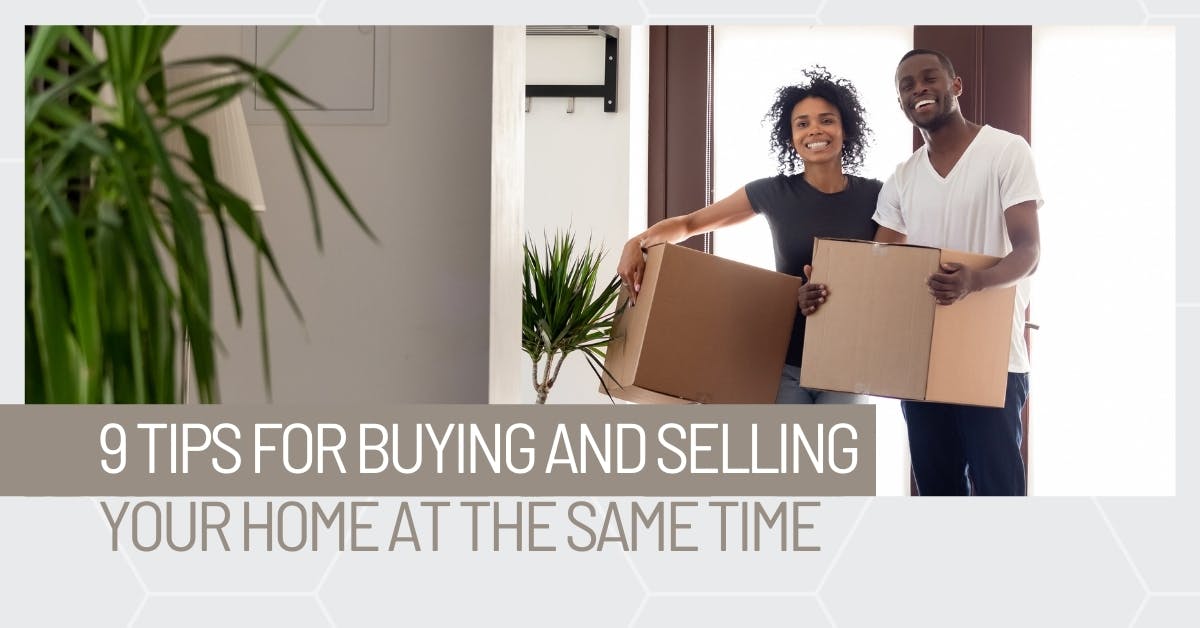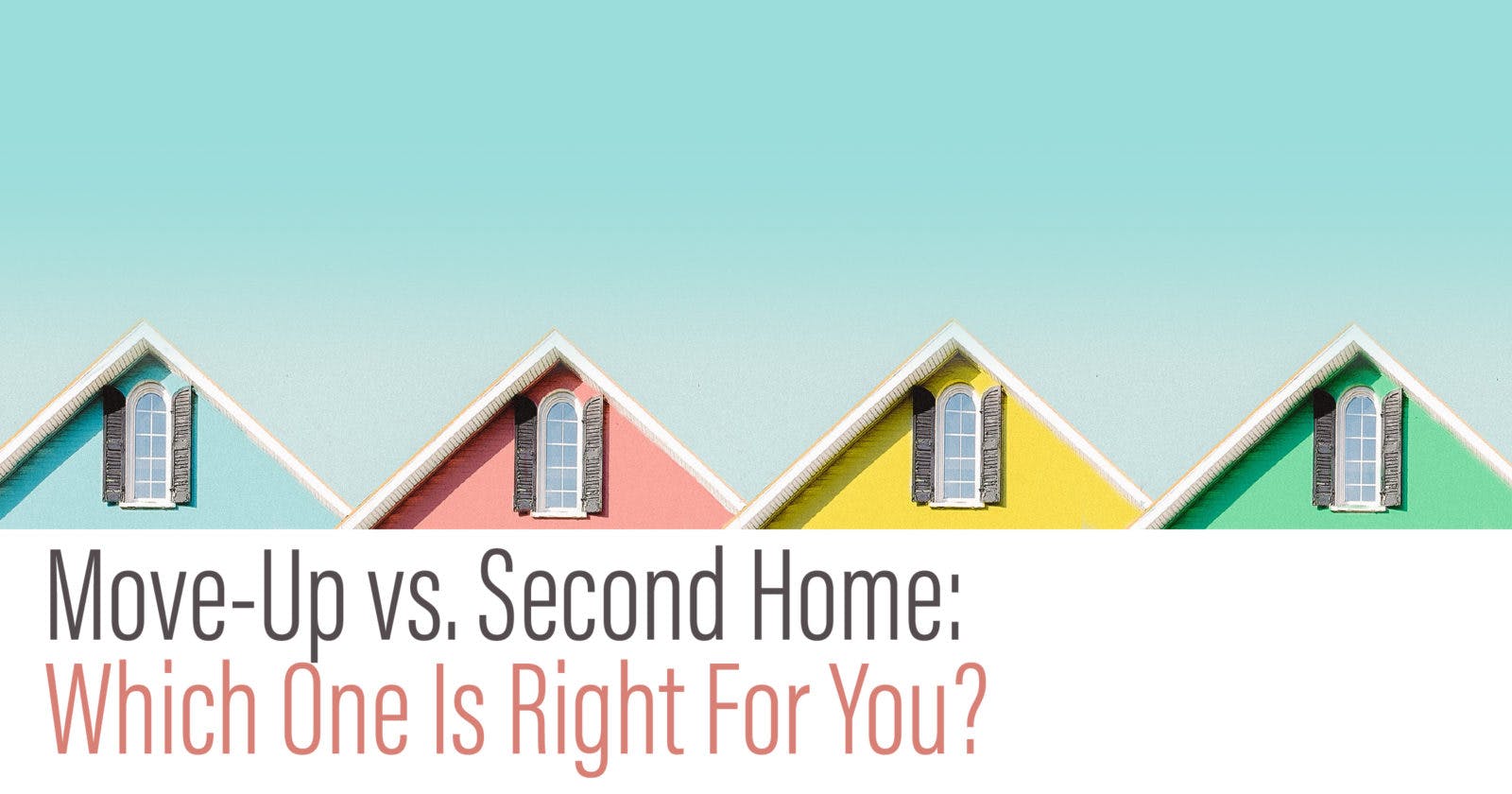
https://garybavis.com/2021/12/09/monthly-market-update-november-2021/

https://garybavis.com/2021/12/09/monthly-market-update-november-2021/

Selling your home when you still need to shop for a new one can feel daunting to even the most seasoned homeowner––especially when the demand for new homes keeps rising, but the supply feels like it’s dwindling.¹ You’re not alone either if you’re already feeling drained by the complex logistics of trying to sell and buy a new home all at once.
Searching for a new home can be exciting, but many homebuyers admit that it can also be stressful, especially if you live in an unpredictable market with plenty of competitors. Unfortunately, waiting out a competitive housing market isn’t always the best idea either since homes are in notoriously short supply across Canada, and listings are expected to remain limited in the most coveted neighbourhoods for some time.²
That doesn’t mean, though, that you should just throw up your hands and give up on moving altogether. In fact, as a current homeowner, you could be in a better position than most to capitalize on a seller’s market and make a smooth transition from your old home to a new one.
We can help you prepare for the road ahead and answer any questions you have about the real estate market. For example, here are some of the most frequent concerns we hear from clients who are trying to buy and sell at the same time.
Continue reading →
While many areas of the economy have contracted, the housing market has stayed remarkably strong. But can the good news last?
When COVID-related shutdowns began in March, real estate brokers and clients scrambled to respond to the shift. Record-low interest rates caused some lenders to call a halt to new underwriting, and homeowners debated whether or not to put their houses on the market. However, those first days of uncertainty ushered in a period of unprecedented growth in the Canadian residential real estate market, which currently accounts for a record-setting 9% of the country’s overall economic output.1
Now, as the spring market approaches, you may be wondering whether the good times can continue to roll on. If you’re a homeowner, should you take advantage of this opportunity by putting your home on the market? If you’re a buyer, should you jump in and risk paying too much? Below we answer some of your most pressing questions.
Why are home prices rising during an economic downturn?
At the beginning of the pandemic, fears of an economic recession were top of mind for homeowners all across the country. Overall, credit product origination declined across a variety of sectors, including car loans and credit cards, and government forbearance programs were put into place to cushion the blow of anticipated economic hardships. However, strong demand —coupled with ultra-low inventory and interest rates—caused real estate prices to continue to rise. The national average resale price soared 17% during 2020, and mortgage originations showed year-over-year growth of almost 30% on the strength of renewals and refinancing in response to record-low interest rates.1,2
According to the Bloomberg-Nanos Consumer Confidence Index, confidence in Canada’s real estate industry reached its highest level on record during the thick of the pandemic.3 Montreal Chief Economist Douglas Porter attributes much of the ongoing strength of Canada’s real estate market to a simple matter of consumer choice and priorities while noting that the downside of the resulting rise in home values is increasing consumer debt.1
Continue reading →
This year has demonstrated, perhaps more than ever, the importance of our family, friends, neighbors, and community. It truly “takes a village” to keep a community functioning effectively, whether that’s by keeping our waterways clean, feeding the hungry, teaching our kids, or supporting small businesses.
With the holidays right around the corner, December offers the perfect opportunity to give back to the place we call home. You might want to focus your efforts near home, expand to our larger community, or even help support the people closest to you. Whether you’re passionate about a particular cause or just want to get more involved in general, let these ideas, both big and small, inspire you to do good in your town.
GIVE BACK NEAR HOME
Clean up our community. Besides beautifying the area, picking up trash keeps it out of our local waterways, which means a cleaner water supply for all of us.
Ideas:
Take action: Check with your local municipality to learn about environmental clean-up efforts in our community, as well as recycling and composting.
Organize or join a neighborhood watch. According to a recent report, neighborhoods with Neighborhood Crime Watch programs experience roughly 16 percent less crime.3 Keeping an eye out for each other instills a sense of safety and security in your neighborhood by increasing surveillance, reducing opportunities, and enhancing information sharing among residents. Even if your neighborhood doesn’t have an official program, you can still share crime information via a neighborhood Facebook group or apps like NextDoor.
Continue reading →
Circumstances like a once-in-a-hundred-years pandemic and historic inventory shortages might have made you assume that the housing market would lose steam, but there is plenty of evidence to the contrary. As Canadian Real Estate Association (CREA) senior economist, Shaun Cathcart noted, “records [are continually] being broken” in the residential property market.1
Indeed, rather than a slowdown, we are continuing to experience a surprisingly robust real estate market across the country. And experts estimate that these conditions are likely to last into the new year. TD Bank Group Economist Rishi Sondhi predicts that high home prices will persist for the rest of 2020.2
Continue reading →
The pandemic has changed the way many of us live, work, and attend school—and those changes have impacted our priorities when it comes to choosing a home.
According to a recent survey by The Harris Poll, 75% of respondents who have begun working remotely would like to continue doing so—and 66% would consider moving if they no longer had to commute as often. Some of the top reasons were to gain a dedicated office space (31%), a larger home (30%), and more rooms overall (29%).1
And now that virtual school has become a reality for many families, that need for additional space has only intensified. A growing number of buyers are choosing homes further from town as they seek out more room and less congestion. In fact, a recent survey found that nearly 40% of urban dwellers had considered leaving the city because of the COVID-19 outbreak.2
But not everyone is permanently sold on suburban or rural life. Instead, some are choosing to purchase a second home as a co-primary residence or frequent getaway. Without the requirements of a five-day commute, many homeowners feel less tethered to their primary residence and are eager for a change of scenery after spending so much time at home.
If you’re feeling cramped in your current space, you’ve probably considered a move. But what type of home would suit you best: a move-up home or a second home? Let’s explore each option to help you determine which one is right for you.
WHY CHOOSE A MOVE-UP HOME?
A move-up home is typically a larger or nicer home. It’s a great choice for families or individuals who simply need more space, a better location, or want features their current home doesn’t offer—like a bigger back yard, a different floor plan, or a dedicated home office.
Most move-up buyers choose to sell their current home and use the proceeds as a down payment on their next one. If you are struggling with a lack of functional or outdoor space in your current home, a move-up home can greatly improve your everyday life. And with mortgage rates at their lowest level in history, you may be surprised how much home you can afford to buy without increasing your monthly payment.3,4
| To learn more about mortgage rates, contact us for a free copy of our recent report! “Lowest Mortgage Rates in History: What It Means for Homeowners and Buyers”Or just review my last months blog post here…..!!https://garybavis.com/2020/08/06/lowest-mortgage-rates-in-history-what-it-means-for-homeowners-and-buyers/ |
One major benefit of choosing a move-up home is that you can typically afford a nicer place if you spend your entire budget on one property. However, if you are longing for that vacation vibe, a second home may be a better choice for you.
WHY CHOOSE A SECOND HOME?
Once reserved for the ultra-wealthy, second homes have become more mainstream. Home sales are surging in many resort and bedroom communities(like Canmore!!) as city dwellers search for a place to escape the crowds and quarantine in comfort.5 And with air travel on hold for many families, some are channeling their vacation budgets into vacation homes that can be utilized throughout the year.
A second home can also be a good option if you are preparing for retirement. By purchasing your retirement home now, you can lock in a low interest rate, start paying down the mortgage, and begin enjoying the perks of retirement living while you are still fit and active. Plus, it is easier to qualify for a mortgage while you’re employed, although you may be charged a slightly higher interest rate than on a primary home loan.6
One advantage of choosing a second home is that you can offset a portion of the costs—and in some cases turn a profit—by renting it out on a platform like Airbnb or Vrbo. However, be sure to consult with a real estate professional or rental management company to get a realistic sense of the property’s true income potential.
WHICH ONE IS RIGHT FOR ME?
You may read this and think….? I would really like both a move-up home AND a second home! But if you are dealing with a limited budget (aren’t we all?), you will probably need to make a choice. These three tactics can help you decide which option is right for you.
You may meet the bank’s qualifications to purchase a home, but do you have the time, energy, and financial resources to maintain it? This is an important question to ask yourself, no matter what type of home you choose.
Most buyers realize that a second home will mean double mortgages, utilities, taxes, and insurance. But consider all the extra time and expense that goes into maintaining two properties. Two lawns to mow. Two houses to clean. Two sets of systems and appliances that can malfunction. Second homes are not always a vacation. Make sure you are prepared for the labor and carrying costs that go into maintaining another residence.
Of course, some move-up homes require more work than a second home. For example, if your move-up option is a major fixer-upper, you will probably invest more energy and capital than you would on a small vacation condo by the beach. Have an honest discussion about how much time and money you want to spend on your new property. Would a move-up home or a second home be a better fit given your parameters?
If you are still undecided, make a wish list of the characteristics you would like in your new home. Then rank each item from most to least important. This exercise can help you determine your “must-have” features—and which ones you may need to sacrifice or delay. Here is a sample to help you get started:
| # | FEATURE |
| Dedicated home office | |
| Extra bedroom | |
| Pool | |
| Walk to the beach | |
| Big backyard | |
| Close to friends and family | |
| Short commute to the office | |
| Investment potential |
Once you have determined your parameters and priorities, it is time to begin your home search.
If you are still not sure whether a move-up home or a second home is right for you, we can help.
Contact us to schedule a free consultation. We will discuss your options and help you assess the pros and cons of each, given your unique circumstances.
We can also send you property listings for both move-up homes and second homes within your budget so you can better envision each scenario. Sometimes, viewing listings of homes that meet your criteria can make the decision clear.
LET’S GET MOVING
Whether you are ready to make a move or need help weighing your options, we would love to help. We can determine your current home’s value and show you local properties that fit within your budget. Or, if your heart is set on a second home in another market, we can refer you to an agent in your dream locale. Contact us today to schedule a free, no-obligation consultation!
Sources:
The Press-Enterprise –
https://www.pe.com/2018/11/17/5-tips-on-when-should-you-buy-a-retirement-house-hint-before-you-quit-work/

The interest rate on Canada’s most popular mortgage, the five-year fixed rate, has fallen to its lowest level in history. In early June, HSBC made headlines when it began offering Canadians a five-year fixed-rate mortgage below 2%. Multiple brokers followed suit, and some are now advertising even lower rates.1 And while many Canadians have rushed to take advantage of this unprecedented opportunity, others question the hype. Are today’s mortgage rates really a bargain?
While discounted five-year fixed mortgage rates have hovered between 2% and 4% for the past decade, they haven’t always been so low.2 For a period of 18 years, from 1973 to 1991, the posted five-year mortgage rate never fell below 10%. At the time, the Bank of Canada was hiking interest rates to try to stem a rising tide of inflation. It’s hard to imagine now, but the five-year fixed rate peaked at over 21% in 1981.3 Fortunately for home buyers, inflation began to normalize soon after, sending mortgage rates on a downward trajectory that has helped make homeownership more affordable for millions of Canadians.
Continue reading →
Traditionally, spring is one of the busiest times of the year for real estate. But the coronavirus outbreak—and subsequent stay-at-home orders—led many buyers and sellers to put their moving plans on hold. In April, sales volume fell to its lowest level since 1984, according to the Canadian Real Estate Association.1
However, while sales have fallen, prices have remained stable. The average home price in April was down just 1.3% from the same month last year.1 And in many metropolitan areas, prices have continued to rise. The Teranet–National Bank Composite House Price Index, which measures 11 major Canadian markets, showed home prices in April were up 5.3% from a year earlier.2
But given safety concerns and the current economic climate, is it prudent to jump back into the real estate market?
Continue reading →
More than 77 percent of people own a smartphone.1 The average person checks their smartphone 46 times a day, with people under the age of 24 checking it an average of 74 times a day.1 We check it while we’re waiting in line and during our leisure time, whether we’re scrolling through social media, reading emails or getting up-to-date on the latest news.
Smartphones are not only a useful tool for communication. With the following apps, you can get organized (whether you plan to buy or sell), save money, learn about the homes in your neighborhood and get inspired for your next renovation project. If you’re like 81 percent of people, you have your smartphone with you during most of your waking hours; let it help you stay organized and make your life easier.3
Continue reading →